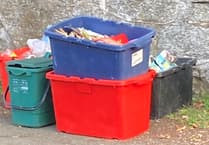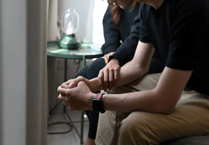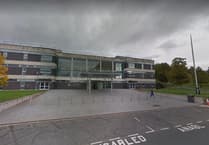An exhibition of the works of acclaimed sculptor and artist Antonia Spowers (1934 to 2020) will take place on Sunday, June 30, from 11am to 6pm in the heart of the Radnor Valley at The Hymns Farm, Walton.
Works include sculptures, drawings and paintings by Antonia, in the largest ever collection of her work held in one place.
Antonia Spowers was considered a brilliant sculptor. Born in Knaresborough in Yorkshire in 1934, she made Wales her home in 1996 and was dedicated to the Welsh art community until she died in 2020.
In 1950 she learnt to paint in Paris with Andre Lhote and Souverbie and from 1951 she learnt to sculpt in Florence with Giunio Gatti.
From 1979 to 1982 she added jewellery to her skills, at an adult education course in Camberley, Surrey, followed by a Welding for Artists course at Westminster College in London, in 1996.
She was an Associate Member of the Royal Society of British Sculptors and a member of the Welsh Group, the 56 Group, Sculpture Cymru, Paperweight and Sculpture-Network.
In 1996, she moved to Wales as she yearned to leave London and live with greater connection to the natural world; she also needed more space to store large work after a show in Battersea Park and the Pumphouse Gallery in London. She lived first on the edge of the Black Mountains, in the Bannau Brycheiniog (Brecon Beacons) National Park. Her studio was high above the beautiful mid-Wales market town of Talgarth, on the edge of the hillside overlooking the valley below. A brilliant gardener, she created a wonderful garden there, living in one barn, and working in the one next to it.
She then moved to Presteigne and designed a studio into the house which she built.
She received a Certificate for Outstanding Contribution to Clwdian Range Area of Outstanding Natural Beauty (1997), a career development grant from The Arts Council of Wales to attend The Language of Water Conference in Bath (2001), a bursary to develop new work from The Arts Council of Wales (2001), and she was lead artist at The Standing Stones of Cwmbran (2007). Her work is held in homes and galleries across the world, from the UK to the International Sculpture Park in Lithuania, to Korea and Australia. She enjoyed commissions, residencies in Britain & Europe and exhibitions across a career spanning over 70 years. The residencies combined work with schools, local communities and environmental trust volunteers as a result of her deep love for the environment and community.
She exhibited all over the UK but her favourite galleries were run by friends in Brecon, Machynlleth, Hay-on-Wye, Caersus.
Exhibitions were held in Brecknock Museum, Brecon, The Found Gallery, Brecon, The Brick Lane Gallery, Llantarnam Arts Centre, The London Art Fair, Mid Wales Arts Centre, The National Botanic Garden of Wales, Newport Museum and Gallery, The Pump House Gallery, Battersea Power Station, The Red House Museum, Christchurch, Somerset House, St Michael’s Discoed, The Museum of Modern Art, Wales, The Tabernacle Gallery, and The Washington Gallery, and she was also represented by jaggedart, London and the Cass Foundation, Goodwood.
Antonia worked predominantly in wood, glass, acrylic, metal and paper, and her work also included pencil shavings, rubber, perspex, bronze, copper, brass, cord – all with an underlying connection to the landscape, in its broadest sense (natural & manmade, of the mind, and underground).
She was particularly interested in the physical properties of materials, either singly or in combination, and their ability to express ideas. For some time water was a major theme, its structure, behaviour, altered states and multiple associations and she experimented with paper and glass to illustrate it. Latterly her work explored themes of disconnection, displacement and erosion.
Passionate about the environment, much of her inspiration came from the Welsh countryside. Her work has an environmental and sustainable emphasis with particular focus on solar power for self-circulating water sculptures and re-cycled and re-usable materials combined with new technologies. She left behind a huge range of sculptures, from table-top pieces to large outdoor installations, and a fantastic collection of drawings and paintings, all of which are being sold at the exhibition, to support young Welsh artists.
An online catalogue is being produced and will be available in due course. Please contact [email protected] to receive a copy when it is published, or keep an eye on www.radnorshireartists.com/exhibitions where it will be highlighted too.





Comments
This article has no comments yet. Be the first to leave a comment.